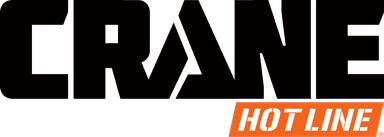ELFA’s Monthly Leasing and Finance Index Says New Business Up
July 10, 2019—The Equipment Leasing and Finance Association’s (ELFA) Monthly Leasing and Finance Index (MLFI-25), which reports economic activity from 25 companies representing a cross section of the $1 trillion equipment finance sector, has showed their overall new business volume for May was $9.1 billion, up 18% year-over-year from new business volume in May 2018. Volume was up 3% month-to-month from $8.8 billion in April. Year-to-date, cumulative new business volume was flat compared to 2018.
Receivables over 30 days were 1.70%, up from 1.50% the previous month and up from 1.60% the same period in 2018. Charge-offs were 0.46%, up from 0.32% the previous month, and up from 0.31% in the year-earlier period.
Credit approvals totaled 75.9%, down from 76.8% in April. Total headcount for equipment finance companies was down 2.0% year-over-year.
Separately, the Equipment Leasing & Finance Foundation’s Monthly Confidence Index (MCI-EFI) in June is 52.8, down from the May index of 59.2.
ELFA President and CEO Ralph Petta said, “Responding ELFA members enjoyed a strong May, with new business volume growth trending upward. The continued low interest rate environment, coupled with solid fundamentals in the U.S. economy, provide incentive for U.S. businesses to expand and grow their operations. As they do so, productive equipment becomes a critical component in serving their customers and enabling them to achieve success in the marketplace. However, at the same time, we notice a slight deterioration in credit quality, which bears monitoring.”
Daniel Krajewski, president and CEO, Sertant Capital, LLC, said, “Overall growth in new business volume demonstrates continued forward momentum in the economy. Advancement in technologies across most industry verticals will likely influence a positive trend in equipment investment in the coming months. The decline in credit quality, however, is a factor worth monitoring. This could be an early indicator of a hardening market, which may force funding sources to be more selective with their credit profiling. The increase in receivables and charge-offs coupled with the decline in employee headcount is also interesting to note. Companies may be protecting current capital reserves ahead of potential effects from the recent tariffs imposed on U.S. goods.”


